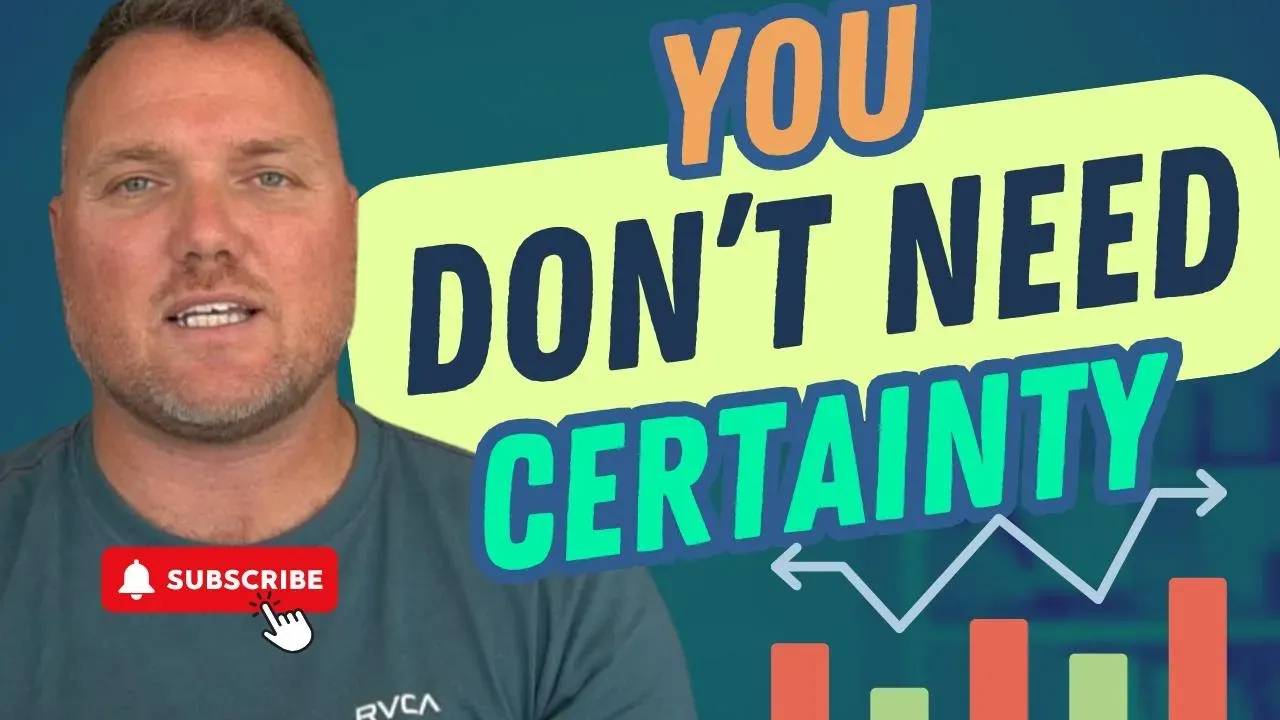Why You Don’t Need Certainty | Breaking Free from OCD, Anxiety & Stress
Aug 20, 2025
Why You Don’t Need Certainty: Overcoming OCD and Anxiety with Matt Codde
Are you stuck in a cycle of needing certainty to feel safe or comfortable? Do you struggle with OCD, anxiety, or fear, constantly searching for answers to questions that never really have an end? In this blog post, based on insights from Matt Codde—a licensed clinical social worker and founder of Restored Minds—we’ll explore why the pursuit of certainty keeps you stuck, and what you can do instead to finally move forward.
The Trap of Certainty and OCD
Many people with OCD, anxiety, and chronic fear believe that finding absolute certainty about their biggest worries will finally bring them relief. Maybe it’s certainty about your salvation, your sexuality, your health, or whether you’ll experience financial ruin or a tragic event. Matt Codde shares, “Most of us, we think that being certain about whatever theme that we're stuck on is what will resolve everything.”
But here’s the paradox: Certainty, as we imagine it, is impossible. When you chase after 100% assurance, you step into an endless loop, hoping that one more answer, one more reassurance, or one more conversation will put your worries to rest. But no matter how much you search, it never truly resolves the underlying feelings.
The Real Reason You Want Certainty
Let’s get honest: you don’t really want certainty just for certainty’s sake. What you want is the feeling you believe certainty will bring—relief from anxiety, fear, doubt, or suffering. Matt Codde puts it plainly:
"You believe that certainty over an idea is going to create a feeling state in you, and generally speaking, the elimination of a feeling that you don't want to experience. So you pursue the certainty relentlessly."
Why Certainty Will Never Satisfy Fear
Even if you temporarily feel reassured, it never lasts. The old fear returns, or a new one takes its place. The pursuit of certainty is a trap because:
-
Certainty doesn’t really exist about most things that trouble us.
-
Chasing certainty keeps you stuck in the loop of obsession and compulsion.
Instead of realizing fear is just an internal emotional state, many people project their fear onto one theme after another—whether it’s health, relationships, or morality. Matt Codde explains,
"The very nature of fear is that it latches on to unanswerable questions to keep us stuck perpetually in the loop. There is no theme that has an answer. There's no answer that will ever satisfy the fear, because the fear self-perpetuates in the loop."
The Path to Real Freedom: Turning Inward
So what’s the way out? It’s not about solving the external problem or achieving certainty. Instead, Matt Codde recommends mastering your internal world:
-
Confront and release emotional states rather than projecting them onto external questions.
-
Learn to accept and manage feelings of discomfort, not run from them.
-
Develop a deeper understanding of your thoughts, behaviors, and beliefs—see how they feed the cycle of fear.
Matt Codde emphasizes,
"When you turn the direction inward and begin working on yourself, that is the actual path to freedom. If you stay in the projection world, it's just this endless pursuit that you'll stay stuck in."
Practical Steps You Can Take
-
Acknowledge your emotional discomfort. Recognize that chasing certainty is an attempt to escape feelings, not solve a real problem.
-
Stop seeking reassurance. Notice the urge to get one more answer, and instead pause and feel the emotion.
-
Employ tools for emotional regulation. Matt mentions the “AAA response” as a method to confront and release difficult emotions.
-
Seek professional guidance if needed. Consider resources like Restored Minds or free guides to support your recovery journey.


